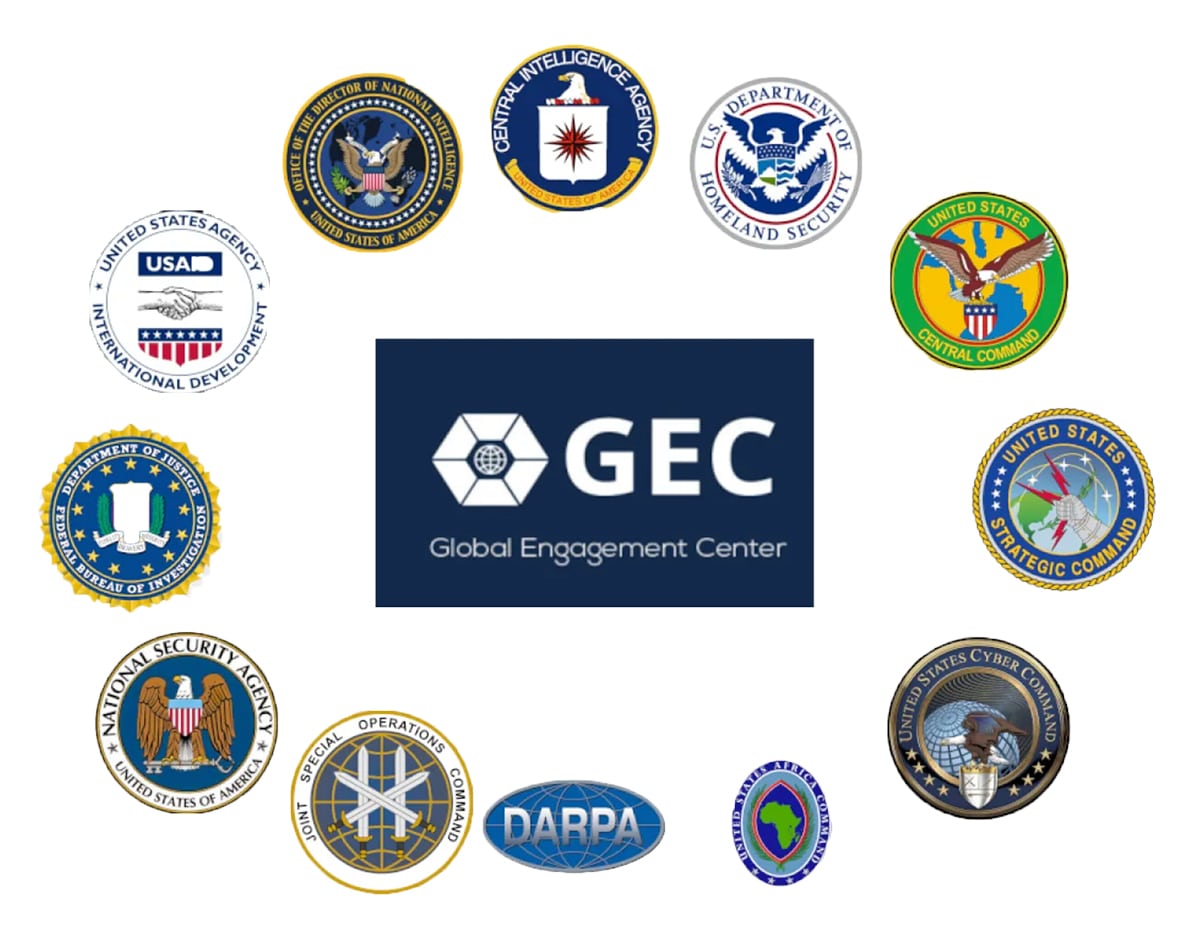Subscribe to Zero-Sum Pfear & Loathing



by | Mar 2, 2023
A brief additional note on the Global Engagement Center, one of the subjects of an upcoming #TwitterFiles thread:
GEC was originally formed as a response to the problem of ISIS successfully recruiting away what one source called “well off white kids from the burbs” in both the U.S. and Europe. (The government always starts hurling money in all directions when any serious social problem reaches into the suburbs). Barack Obama’s Executive Order was specific in outlining this mission, establishing GEC to “counter the messaging and diminish the influence of international terrorist organizations, including the Islamic State of Iraq and the Levant (ISIL), al Qa’ida, and other violent extremists abroad.”
At the time, “information operations” had a specific meaning in the intelligence and counterterrorism realms. One might, for instance, spread a rumor that a certain terrorist had an STD, so that he would rush online to defend his honor just long enough to be geolocated and droned.
Others in the national security establishment had ultimate faith in quantitative information analysis, turning life and death matters over to algorithms that armed and fired at targets in places like Yemen or Syria once enough digital boxes were checked: military age male, used the wrong cell number too many times, spotted by satellite carrying something that could be a gun, etc. “We kill people based on metadata,” boasted former NSA and CIA chief Michael Hayden in 2014.
The original conceit of the GEC was to gather pros from this world, who’d put their heads together and come up with kindler, gentler ways of “disrupting” ISIS propaganda. From the point of view of the Pentagon, which paid most of GEC’s original budget, it was a no-lose play: spending $70-$80 million a year was worth it if it meant even one fewer death in the field, be it of a U.S. soldier or a bystander to a drone strike.
Then 2016 happened, and GEC’s mission changed on a dime.
Obama signed the original executive order in March of 2016, but it wasn’t until after Donald Trump’s election that a bipartisan pair of Senators — Ohio’s Rob Portman and Connecticut’s Chris Murphy — put GEC into the 2017 National Defense Authorization Act, enshrining both its mission and its budget in law.
“SECTION 1287, GLOBAL ENGAGEMENT CENTER” of the NDAA said the Secretary of State shall “establish within the Department of State a Global Engagement Center” that would “integrate interagency… efforts to track and evaluate counterfactual narratives abroad that threaten… national security interests” [emphasis mine]. The careful language about a center “within” State obscured a key truth about GEC, which is that it’s not a sub-agency of State at all, but an “interagency” group whose original partners included the FBI, DHS, CIA, the Office of the President, and multiple DOD entities, including DARPA, Special Operations Command (SOCOM), U.S. Strategic Command (STRATCOM), and others.
The original GEC team was probably well chosen for its original task, countering ISIS, but there was a problem baked into even that mission. It was assumed, incorrectly, that American and British citizens hopping on planes to do nation-building for ISIS had to have been duped by “misinformation” or “disinformation.”
In some cases, this was true. Some converts naively believed in the limitless piety of ISIS fighters, so they could be affected by counter-propaganda that depicted, accurately, how these figures drank and whored like soldiers everywhere. But many ISIL converts defected for legitimate, if bizarre reasons. Some just wanted to horrify their parents. Still others were just turned on by beheading videos. This was twisted, but not “disinformation” in any real sense.
An even bigger reason: many ISIL recuits perceived little chance to ever have an impact or even own a home in their own societies, while ISIS was offering them land and authority just a click away. Even a writer at the Huffington Post was writing in 2015 that the problem wasn’t social media per se, but that many potential recruits “don’t feel they have a stake or future in their community or country.” Offered such a stake, they jumped at the chance.
This reality is why some in the military and intelligence worlds were unimpressed with “counter-propaganda” as a key to defeating ISIS, preferring instead to focus on battlefield success. After all, dreams of a Mesopotamian Homestead Act start to sound less appealing to Western net-surfers when potential new comrades are packed into “less than a city block of territory” in Mosul, as the Pentagon announced in 2017.
But the concept that a person who has an alien belief system must have been “misinformed” or “disinformed” has survived to the present. It permeates the entire “disinformation studies” complex, which is constantly discussing the “impact” of disinformation on, say, the 2016 election, but often stops short of quantifying that impact or even identifying what the disinformation was. The notion that people voted for Donald Trump because they were “misinformed” or manipulated by Russians is a fantasy, a mental self-defense mechanism for people who are unable to face the more obvious real-world reasons.
In many ways, it’s the same issue as 2015: people in the U.S., no less than in other parts of the world, people rebel because they feel they don’t have a “stake in their future or their community.” They’re not misinformed, but guided by real life experience. If anyone is misinformed, it’s the “disinformation experts” themselves, who either accidentally or by design continually make the same mistake: dressing up their own ivory tower assumptions about this or that population as hard data, and evidence.
If “disinformation studies” has an original sin, this is it.